Charger Enova All-40
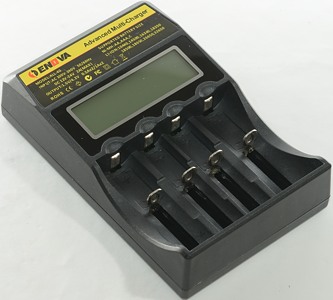
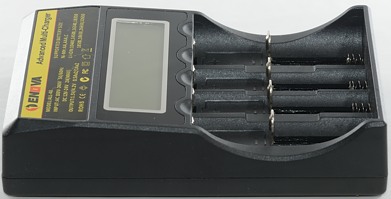
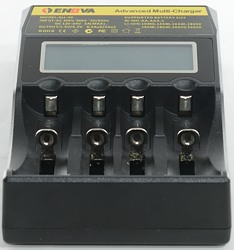
Enova has a long line of chargers with 2, 4 and 8 channels. This review is about one of the 4 channel chargers. The charger can charge both LiIon and NiMH batteries and will show voltage on a display while charging. It has automatic current selection between 0.5A and 1A.
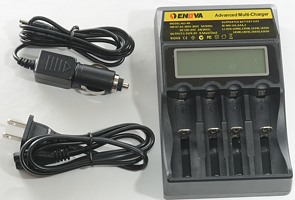
I got the charger without any box, only the charger, mains cable and car adapter. I got the manual in a email.
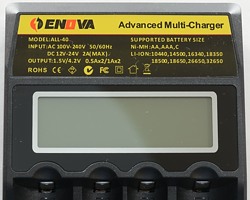
The user interface on the charger is only a display, there is no buttons to press.
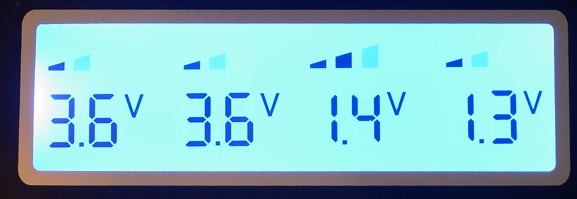
The display shows the voltage on the cell and shows a animation when charging. The background light is on when the charger is powered.
Like many other chargers it is missing a dedicated battery full indicator, you have to look at the animation. It will stop with all blocks shown, when the battery is full.
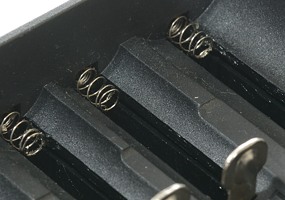
These springs is used to select current, if they touch the slider 1A charge current is used, in all other cases 0.5A charge current is used.
This means that any xx650 battery will be charged at 1A, all other batteries at 0.5A
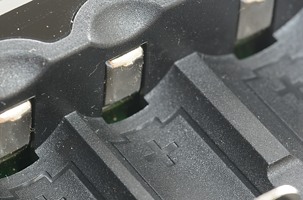
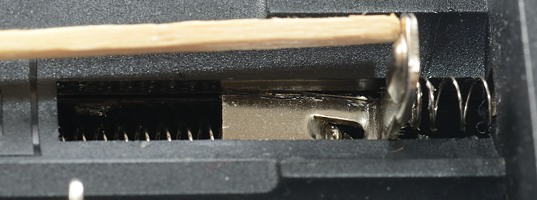
The battery slots are the usual construction and works fine, even though they do not have a metal rail.
It can handle batteries from 31.5mm to 71mm, 1A charging is activated at 65mm.

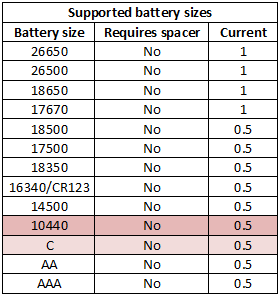
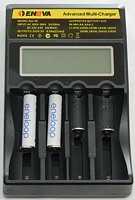
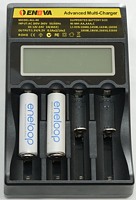
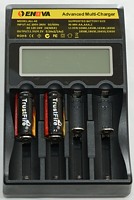
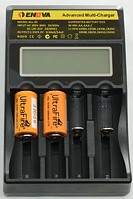
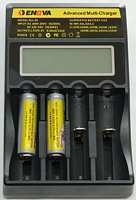
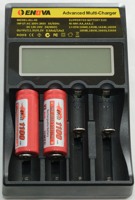
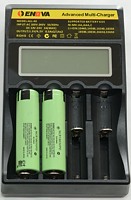
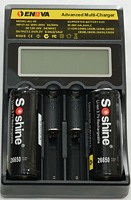
The charger can easily handle 70 mm long batteries including flat top cells.
The current is too high for 10440 cells.
Due to the small button top on C cells they have problems making connection.
Measurements
- The charger will charge with full current from 0 volt.
- Above 2.2 volt charger assumes LiIon battery.
- Maximum voltage readout is 1.5 volt when charging NiMH.
- Maximum voltage readout is 4.2 volt when charging NiMH.
- Voltmeter shows within 0.1 volt.
- Voltmeter will freeze readings when charging stops.
- Charger will not restart if voltage drops.
- Charge will restart charging after power loss, or battery insertion.
- Current is selected with the spring in the back
- The background light stays on when the charger is powered.
- When not connected to power it will drain about 0.5mA from a LiIon battery and only 0.06mA from a NiMH battery.
LiIon charge
%20%231.png)
The charger uses a simulated CC/CV charging, but with a fairly high termination current.
The charge voltage is also at the upper limit of the allowed range.
%20%232.png)
%20%233.png)
Channel #2 and #3 looks like channel #1.
%20%234.png)
This channel does go slightly above maximum allowed voltage and the termination current is slightly lower.
%20%231.png)
Again the charge voltage is at the upper limit or maybe a little bit above.
%20%231.png)
As expected the 3400mAh cell takes slightly longer to charge.
%20%231.png)
There is no problem charging my old IMR cell.
%20%231.png)
Or the 18350 cell.
%20%231.png)
Oops, here the high voltage did trigger the over voltage protection in the battery.
.png)
The charger uses same current with 4 cells as with a single cell.
.png)
The charger uses up to 1.9A from a 12V supply.
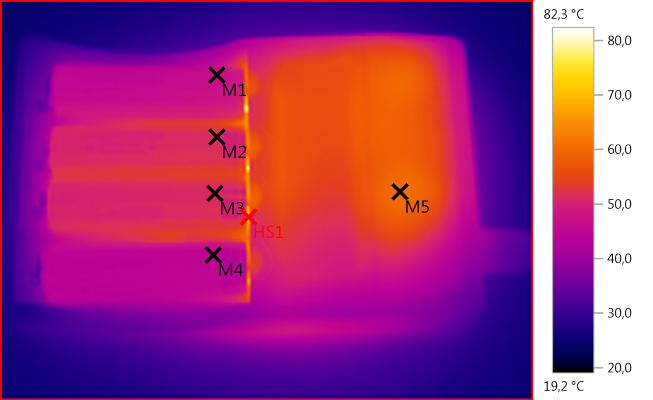
M1: 47,0°C, M2: 51,7°C, M3: 51,2°C, M4: 45,3°C, M5: 60,7°C, HS1: 82,3°C
The cells get fairly warm during charge.
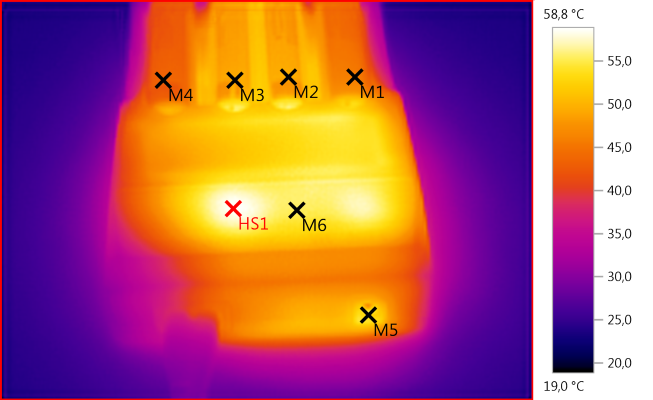
M1: 45,7°C, M2: 49,4°C, M3: 48,9°C, M4: 43,7°C, M5: 52,9°C, M6: 55,3°C, HS1: 58,8°C
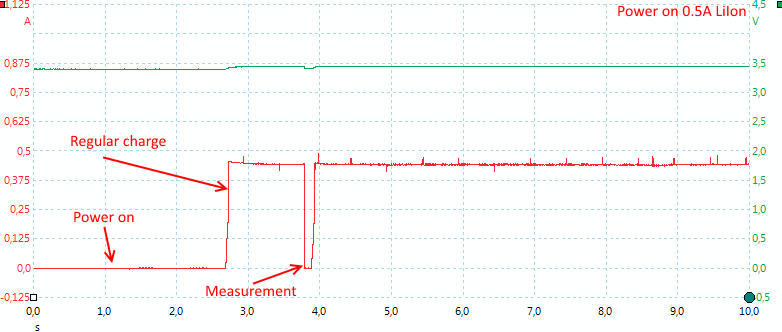
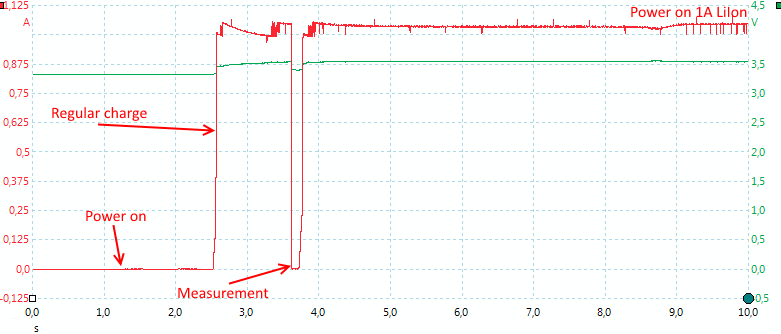
The charger is very fast to start, it only needs about 1 second.
After second charging it will do a voltage check, I wonder if this is used to check for LiIon/NiMH type cell.
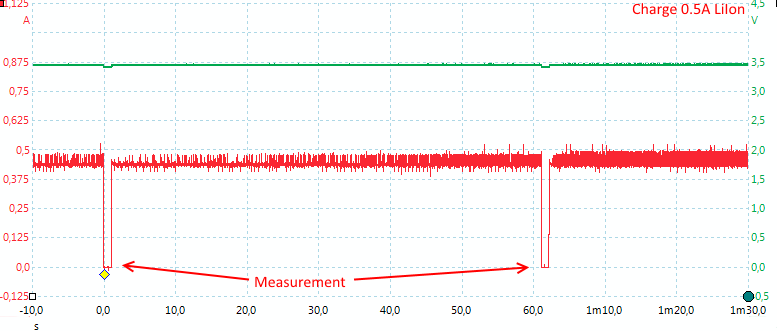
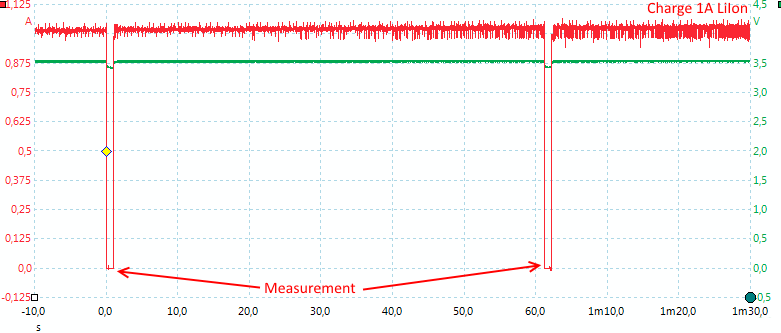
During regular LiIon charger the voltage is checked each minute.
NiMH charge
%20%231.png)
This charge looks good with a -dv/dt termination and as can be seen on the temperature the battery is full.
There is no trickle charge.
%20%232.png)
%20%233.png)
%20%234.png)
The other channels looks the same.
%20%231.png)
%20%231.png)
The XX and powerex is also terminated with -dv/dt.
%20%231.png)
The 0.5A current is fine for the AAA cell.
%20%231.png)
The charger is fairly slow to detect a full cell. This will usual be the case with -dv/dt chargers.
.png)
Four batteries is charger at the same current and also with -dv/dt.
Note: The temperature track is not from the same battery as the voltage and current track.
.png)
It looks like the internal circuit switches mode at 150 minutes, but it does not affect the charging.
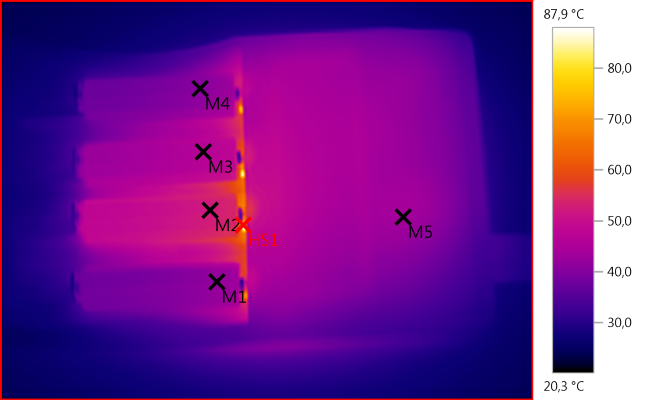
M1: 41,9°C, M2: 52,2°C, M3: 46,4°C, M4: 40,7°C, M5: 43,7°C, HS1: 87,9°C
It looks like most of the heat goes to the battery with M2 on it.
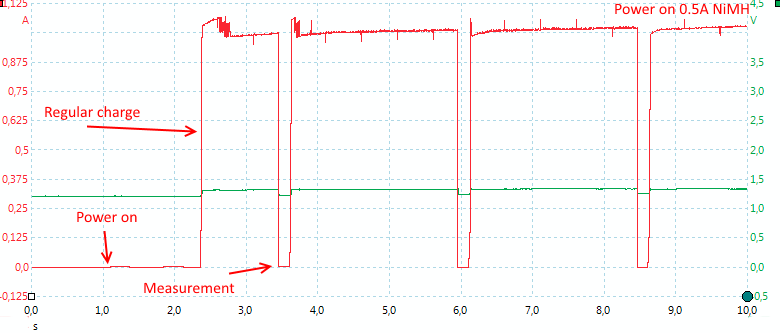
NiMH is also started in about 1 second.
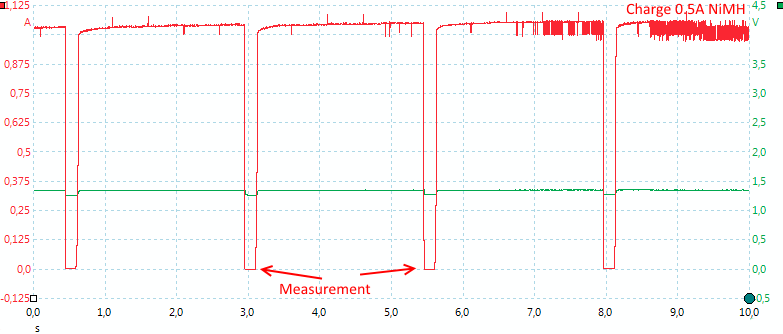
Here the measuring pulses are much more frequent.
LiIon & NiMH mixed charge
.png)
.png)
There is no problem mixing NiMH and LiIon batteries in the charger.
Testing the mains input with 2500 volt and 5000 volt between mains and low volt side, did not show any safety problems.
Conclusion
The charger does a acceptable job for LiIon, but I would have like the voltage to be a bit lower.
With NiMH it does a good job, with a nice -dv/dt termination and no trickle current.
Generally the temperature is on the high side when charging 4 batteries.
The automatic current selection makes it easy to use the charger for many battery sizes and it will charger 18650 cells with a decent speed.
Notes
The charger was supplied by Enova for a review.
Here is an explanation on how I did the above charge curves: How do I test a charger



















%20%231.png)
%20%232.png)
%20%233.png)
%20%234.png)
%20%231.png)
%20%231.png)
%20%231.png)
%20%231.png)
%20%231.png)
.png)
.png)






%20%231.png)
%20%232.png)
%20%233.png)
%20%234.png)
%20%231.png)
%20%231.png)
%20%231.png)
%20%231.png)
.png)
.png)



.png)
.png)